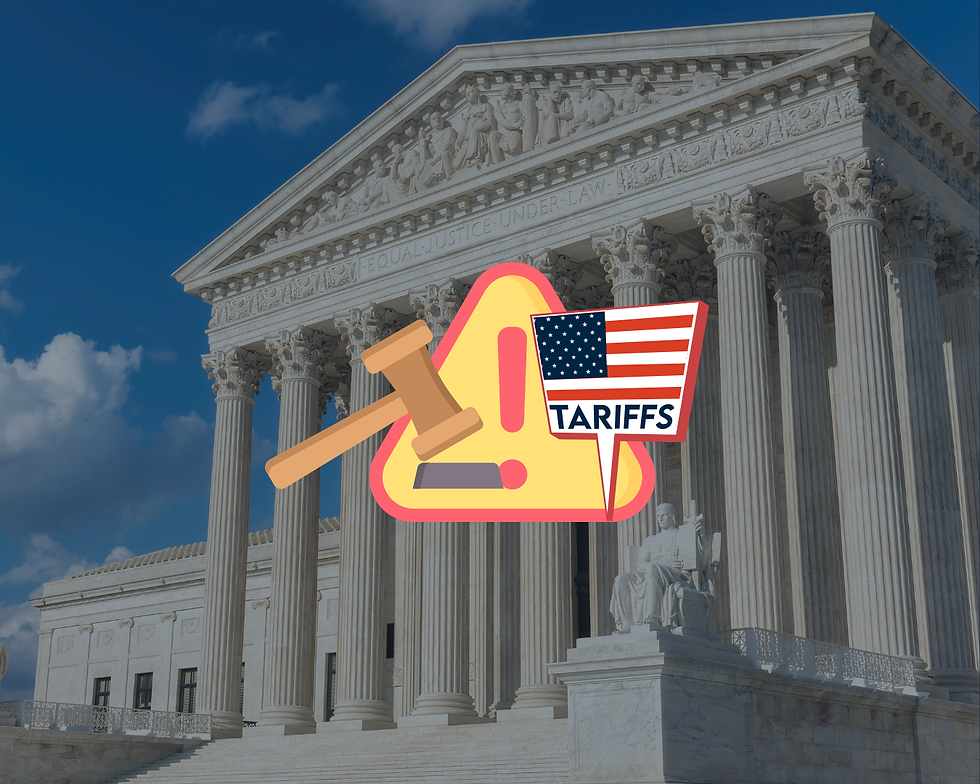Forced Labor and Using CBP’s ACE Portal
- clarkespositolaw

- Mar 4, 2024
- 3 min read
Updated: Mar 5, 2024

The Uyghur Forced Labor Prevention Act (UFLPA) is a crucial piece of legislation aiming to stop the importation of goods made through forced labor in China's Xinjiang Uyghur Autonomous Region (XUAR). For a history of the UFLPA, click here to read our article. Recent updates to the ACE Protest tool by U.S. Customs and Border Protection (CBP) make enforcing the UFLPA more effective.
As of January 27, 2024, the ACE Protest user interface (UI) has undergone significant improvements to make the review process for protests related to the UFLPA simpler. Now, individuals who are protesting a Notice of Exclusion for UFLPA can utilize the ACE Protest tool to contest a CBP exclusion decision.
How to Request a UFLPA Review
To request a review under the UFLPA, when filing a protest, individuals should navigate to the protest creation screen and choose “Other” for the “Issue”. Then, they should select one of the following options for the “Secondary Issue”:
UFLPA Exception Review
UFLPA Applicability Review
Filers should opt for “UFLPA Exception Review” if:
Importers seek an exception to challenge the UFLPA’s presumption that their merchandise is made with forced labor. Section 3 of the UFLPA outlines the prerequisites for such an exception. Importers must provide evidence demonstrating compliance with due diligence, supply chain tracing, supply chain measures, and evidentiary requirements, and must respond fully to CBP’s requests for information. The evidence must be clear and convincing, showing that the goods were not made with forced labor.
Importers must fully adhere to the guidance described in section 2(d)(6) of the UFLPA and any accompanying regulations (as outlined in DHS UFLPA Strategy and CBP’s Operational Guidance for Importers, Section II, III, IV, pages 9 – 15).
Filers should opt for “UFLPA Applicability Review” if:
Importers dispute the applicability of the rebuttable presumption to detained imported goods under the UFLPA. In an applicability review, the importer asserts that the supply chain for the goods does not involve any sourcing from the XUAR or any entity listed in the UFLPA Entity List.
Importers can provide supply chain tracing using guidelines provided in DHS UFLPA Strategy and CBP’s Operational Guidance for Importers, Section IV (D and E), page 15.
Upon submission, these protests are directed to the relevant Center of Excellence & Expertise (Center), Port of San Juan, or HQ Forced Labor Division for assessment.
Does your business require assistance navigating the UFLPA regulations or establishing a Social Compliance Program? Have questions? Don’t hesitate to call our office at (917) 546-6997, we would be happy to speak with you.
Ready to Learn More About CBP, OFAC,
BIS, FWS, and FDA?
We have dozens (literally!) of videos in our educational library on our YouTube channel related to importing, exporting, US Customs, BIS, OFAC, FWS, FDA, NFTs, and so much more. Subscribe to our channel now to stay up to date on the latest on these topics!
Our law firm helps growing companies who import and export comply with government regulations. We love what we do and we take our oath of confidentiality over your matters very seriously. How much? Watch this video to learn about it. CLICK HERE
Wondering "why should you have an attorney on your side?" Click here to watch one of our attorneys, Susan Steinman, break down the critical benefits as to why you want to have one on your side - whether you hire us to help you or another law firm.
Have questions? We are determined to help you.
We listen carefully to clients to ensure our understanding of the legal issues at hand, their factual context, and any limitations that might impact a chosen strategy. Feel free to connect with us using the contact form at the bottom of the Home page or send us an email at contact@clarkespositolaw.com.
.png)



Comments